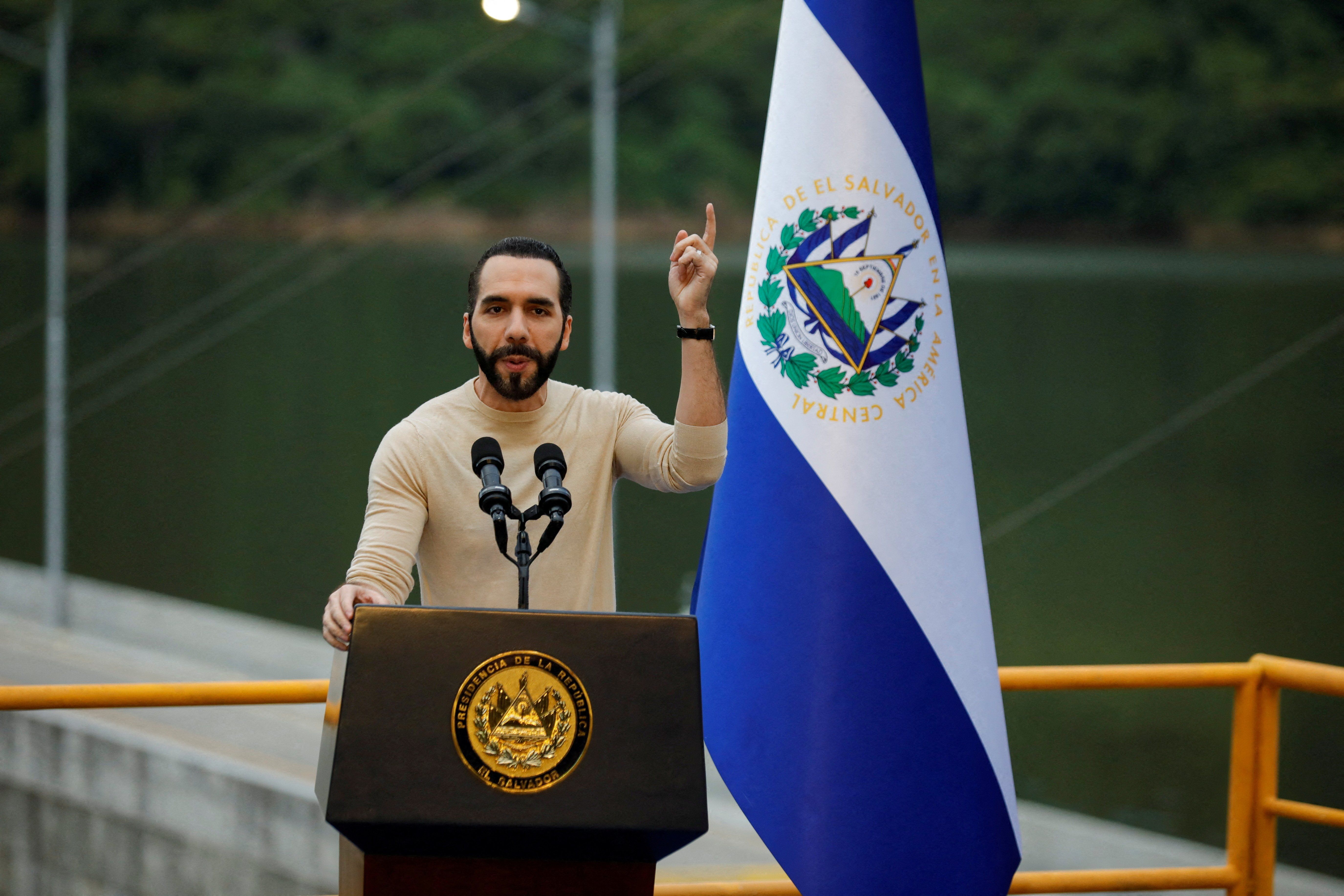El Salvador's President Nayib Bukele speaks during the inauguration
REUTERS/Jose Cabezas/File Photo
El Salvador’s Supreme Electoral Tribunal has given President Nayib Bukele the green light to seek another term, even though the country’s constitution says consecutive presidential terms are a no-no. Polling suggests that Bukele, 42, is poised to win next year’s election handily, largely due to a war he’s waged against violent street gangs that’s gained widespread domestic approval.
The decision, announced Friday, came roughly two years after a ruling from El Salvador’s highest court that paved the way for Bukele to run again. The 2021 ruling, condemned by the United States as anti-democratic, came from justices who were appointed by lawmakers from Bukele’s ruling party.
Authoritarian tendencies: Bukele has taken a bombastic, controversial approach to leadership — sending armed men into Parliament to intimidate lawmakers, for example.
But Bukele is wildly popular in El Salvador for overseeing a brutal crackdown on gang violence, which has cleaned up the country’s streets while raising myriad allegations of human rights violations. He’s likely to lean heavily on this effort as he vies for another term.
Though history shows strongman behavior can often inspire the masses to revolt against leaders, so far the opposite has been true for Bukele. As democratic institutions continue to erode under his watch, Bukele continues to gain more fans on the far right in the US.From Your Site Articles
